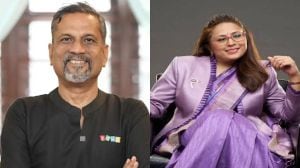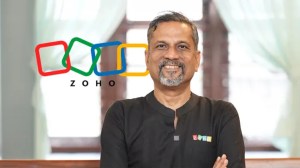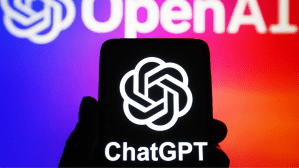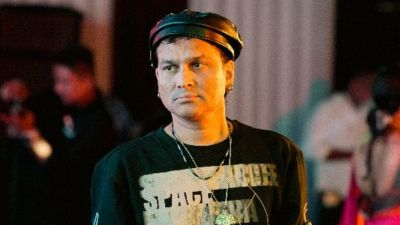“If India can stay on the path of the 2047 plan, that’s not just beneficial to India, it’s beneficial to the whole world,” said Bill Gates in Mumbai on Thursday, adding that the best example of India’s role in helping other countries is its digital public infrastructure. “It’s a phenomenal thing, whether in banking, government benefit distribution, insurance or stock trading; every time I am here, I see a dozen more companies.”
The tech tycoon-turned-philanthropist, who made his third visit to India in three years, was the guest at the Express Adda and was in conversation with Anant Goenka, executive director of The Indian Express Group. After stepping down from Microsoft’s board in 2020, Gates has dedicated himself to philanthropy through the Gates Foundation, which has been working in India in sectors such as public health, immunisation, sanitation, and agriculture.
Gates acknowledged India’s growing focus in the research and development sector and added that the Gates Foundation will shift from funding delivery to funding innovations. Talking about how India is going to be a significant source of innovation that helps solve problems domestically, Gates said, “A large number of people in India have done remarkable work, with strong support from the government, beginning with the Prime Minister.”
Citing the example of India’s contribution to manufacturing affordable vaccines, which is one of his favourite innovations from India with the potential to solve world problems, he said, “Affordable vaccines and Deep AI – that is a hard choice for me.”
Acknowledging India’s work in AI, Gates spoke about how his interactions with Indians show that some are interested in contributing to foundational AI development, but the majority are focused on applying AI to specific domains.
“I believe India is approaching AI the right way. Much of India’s use of AI will focus on applying it effectively. The state-of-the-art foundational models are largely open source and widely available, with techniques extensively published. While much of the great work in AI is coming from the US and China, India is not lagging. The latest models, even if a few months behind on benchmarks, are accessible to everyone. India can take these models and adapt them to its own needs, such as ensuring support for Indian native languages. For example, when Indian farmers discuss their crops, the data quality and understanding of local dialects can be optimised,” he said.
Talking about India as a brand, Gates spoke about how one can meet great Indians, like Microsoft CEO Satya Nadella, all over the world. Encouraging more people to come to the country, he said, “A lot of people don’t know much about India.”
Gates spoke about how there are enough voters in India who select who will run the country. “And that has created a very positive dynamic that you’re competing in good governance,” he said.
Asked to choose from India, US and China in terms of which economy he would bet on for higher returns, Gates said that in terms of returns, if one is talking about the valuation of stock markets, the Indian stock market is already factoring in some of the expected growth.
“India is in an interesting position where the main debate revolves around whether the growth rate will be 5% or 10%. It seems highly likely that it will fall within this range. This is a remarkable period, offering significant opportunities. The economic growth will enable the government to allocate more funds toward healthcare and education. India is, therefore, in a strong position. In contrast, wealthier nations like the United States typically do not experience growth rates as high as 5%. In fact, growth of 2.5% to 3% is considered positive, and with the advancement of AI, there is a possibility that such growth rates could be achieved,” he said.
Gates also spoke about nationalism and democracy. “Nationalism at its most extreme leads to wars,” he said, while also giving an example of good nationalism such as teams competing in the Olympics. Gates also said that democracy saw a dramatic rise after World War II, and “now we’re actually seeing a slight decline. And I find that concerning”.
On artificial intelligence, he said, “AI in general scares me because mankind is going to have to shape it. The world will feel very, very different. I worry about AI in general, but I know that the people at OpenAI have done a good job.”
Talking about relations between Washington and Silicon Valley, Gates talked about how he predicts that by the next presidential elections in the US in 2028, policies around AI will be a primary topic.
“Because people will begin to see not only white-collar AI but also blue-collar AI, which involves robotics. Currently, the application of AI in this area is quite limited. However, the increasing number of people working on it and the advances being made in robotics suggest that if not 2028, then by 2032, the job market will already be undergoing significant changes,” he said.









